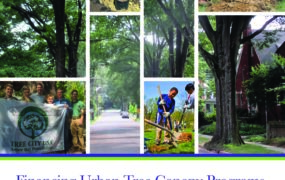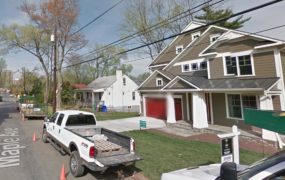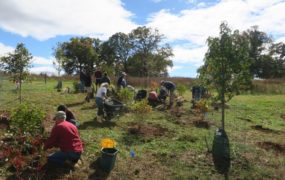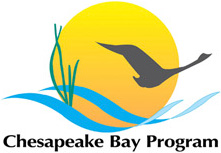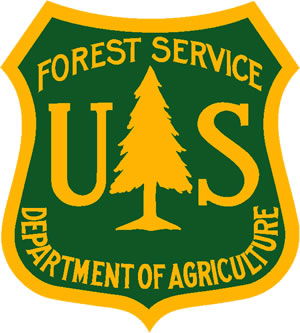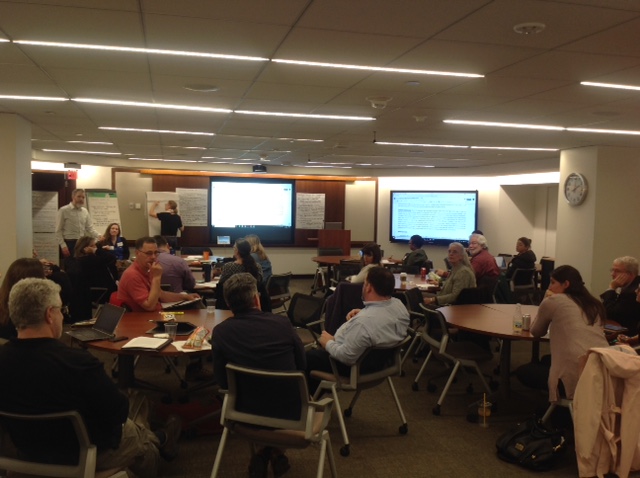
Introduction
The Alliance for the Chesapeake Bay, the University of Maryland Environmental Finance Center, and the Metropolitan Washington Council of Governments are embarking on a year-long effort to create a written resource and training for Chesapeake communities on sustainable and scalable funding strategies for achieving local tree canopy goals.
Background
Among best management practices for reducing stormwater flow and nutrient loads, urban tree canopy is the only practice that appreciates in value, returning an estimated two dollars per dollar invested. Investment in tree canopy offers an affordable and effective alternative to grey infrastructure to reduce stormwater flow. As part of the 2014 Chesapeake Bay Watershed Agreement, all of the Chesapeake Bay states committed to expand urban tree canopy by 2025. Washington, D.C., Maryland, and Virginia committed to 480, 540, and 480 acres, respectively.
Most Chesapeake Bay localities struggle with achieving tree canopy goals due in part or wholly to their limited local capacity to maintain and plant trees, and to protect existing canopy. This limited capacity often results from insufficient resources to implement local urban forestry programs. Localities seek scalable strategies and best practices defined by case studies as guidance for overcoming their own barriers to sufficiently resourced urban forestry programs. Three approaches for addressing barriers include:
1. Improving engagement and education of local officials, residents, and the private sector on the importance of sustaining urban forests and to fund urban forestry programs;
2. Funding urban forestry programs by leveraging programs and fees; and
3. Cost-saving approaches to increasing and sustaining tree canopy through coordinated infrastructure improvement projects. Comprehensive examples are needed to best understand how to implement these approaches successfully.
Goals for Project
The Urban Tree Canopy funding and financing document will consist of two parts. First, it will provide general guidance for local governments and urban forestry professionals on funding and financing urban tree canopy efforts. The Alliance and EFC will assess and summarize federal, state, local, and private funding opportunities available to support local tree canopy implementation in the Chesapeake Bay Watershed. Funding such as grants play a valuable role in a financing strategy, but tend to be a finite resource. Therefore this document will also point communities towards revenue streams and financing mechanisms that can sustain program support over time.
In addition to the document, the Alliance will assist the Metro Washington Council of Governments (MWCOG) with providing a range of follow-up services to communities within the MWCOG geographic region on how to utilize the document as a tool for working with their local elected official to prioritize tree canopy efforts. Services will include a one-day workshop for the municipalities at large, and one-on-one “office hours” offered on a case-by-case basis to consult with the communities with limited capacity within the MWCOG geographic region.
Urban Tree Canopy Funding and Financing Advisory Meeting
On March 29th, the Alliance, the DC Department of Energy & Environment, the University of Maryland Environmental Finance Center, and MWCOG hosted 30 local and state urban forestry coordinators from the region to share their strategies for addressing funding shortfalls in local urban forestry programs. Approaches and challenges were captured and will serve as the foundation to the written resource.
Next Steps
The University of Maryland Environmental Finance Center and the Alliance for the Chesapeake Bay will write the guidance resource during spring/summer 2018. The training workshop is planned for November 2018.
If you’d like to be involved in this project or to learn more, contact Jenny McGarvey at jmcgarvey@allianceforthebay.org.
Story written by Jenny McGarvey, Alliance for the Chesapeake Bay
